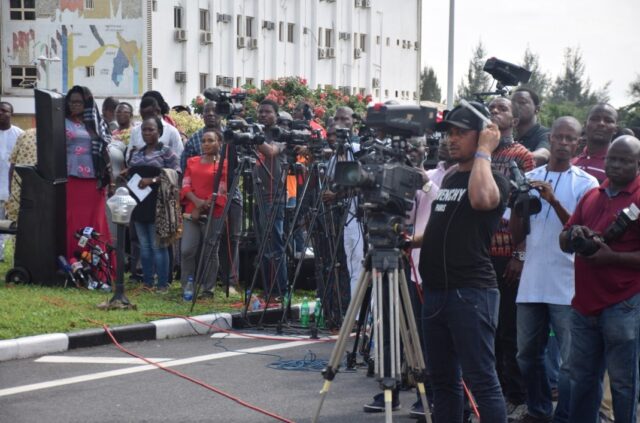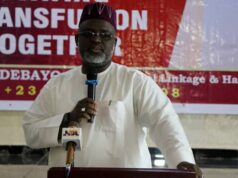The Committee to Protect Journalists (CPJ) says at least three journalists in Nigeria have been detained since August over allegations of violating the country’s Cybercrime Act.
In a report published on Friday, CPJ said authorities continue to use the law to harass the media despite its reform.
The law was amended after media rights groups and journalists clamoured for a review, citing its abuse of criminalising “stalking”.
In August, Azuka Ogujiuba, publisher of the Media Room Hub news site, was arrested twice in Abuja for publishing a court injunction related to a disputed land sale, she told CPJ.
The first time, she was held for five hours; the second time, for three days while police searched and retained her phone for five days.
Ogujiuba was released on August 11 after interventions from friends, taking down the article, and writing an apology.
On September 9, Ekiti police detained Sodeeq Atanda, a reporter with the Foundation for Investigative Journalism (FIJ), on allegations of cyberbullying, criminal defamation, conspiracy, blackmail, and malicious misrepresentation.
Atanda was responding to a letter summoning him for questioning, following a complaint by a university vice-chancellor over FIJ’s allegations of sexual harassment.
Fisayo Soyombo, FIJ founder, told CPJ that Atanda was detained for 11 hours, then freed without charge after multiple calls for his release.
On September 18, police detained Fejiro Oliver, the pen name for an investigative journalist and publisher of the Secret Reporters news outlet, at his office in Abuja. He was flown to Asaba, the Delta state capital.
Oliver’s real name is Tega Oghenedoro.
On October 3, Oliver was charged with cyberbullying, according to court documents, which CPJ reviewed, and Inibehe Effiong, his lawyer.
The charge sheet alleged that Oliver made several “malicious” publications on his Facebook account in July and August “aimed at destroying the reputation” of Sheriff Oborevwori, governor of Delta state, by calling him “defamatory names and accusing him of incompetence” and “rigging”.
In his reporting, Oliver has consistently alleged mismanagement by Oborevwori, according to CPJ’s review of the Secret Reporters site.
The same charge sheet accused the journalist of “cyberstalking” Ede Omueya, Delta senator, with Facebook posts between May and July “aimed at destroying his reputation”.
On October 16, Oliver was granted bail in the sum of N15 million bail with two sureties to take responsibility for his obligations to the court, but Effiong said the journalist could not meet up with the terms.
On October 17, authorities filed two more defamation charges under the criminal code, accusing Oliver of seeking to “injure the reputation” of two other politicians with corruption allegations and insults on Facebook between February and May, according to copies of the charge sheets reviewed by CPJ.
According to CPJ, quoting Effiong, the journalist was granted bail on October 29.
‘CYBERCRIMES ACT USED AS HARASSMENT TOOL’
The CPJ said in its report that at least 25 journalists faced prosecution under the Cybercrimes Act before the 2024 reforms.
The organisation noted that since the reforms, five journalists have been prosecuted and four others jailed for almost six months.
Angela Quintal, CPJ Africa director, said the developments are concerning, particularly as the general elections approach.
“Nigerian authorities appear stuck in an era where they see the Cybercrime Act as a readily available tool to harass the press, which is particularly concerning as citizens look to inform themselves ahead of national elections in early 2027,” Quintal said.
“We call on authorities to repeal or reform sections of the Cybercrimes Act and of the penal and criminal codes that are regularly used to jail journalists.”
Earlier this year, the CPJ said amendments to the Cybercrimes Act, intended to safeguard journalists and prevent its misuse, have failed to achieve their purpose.




